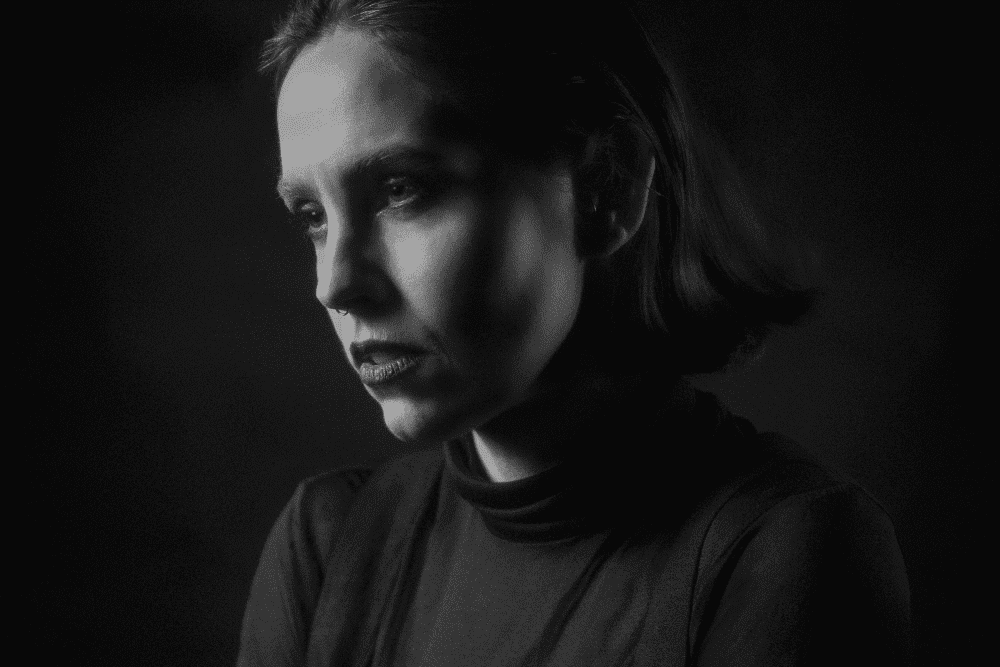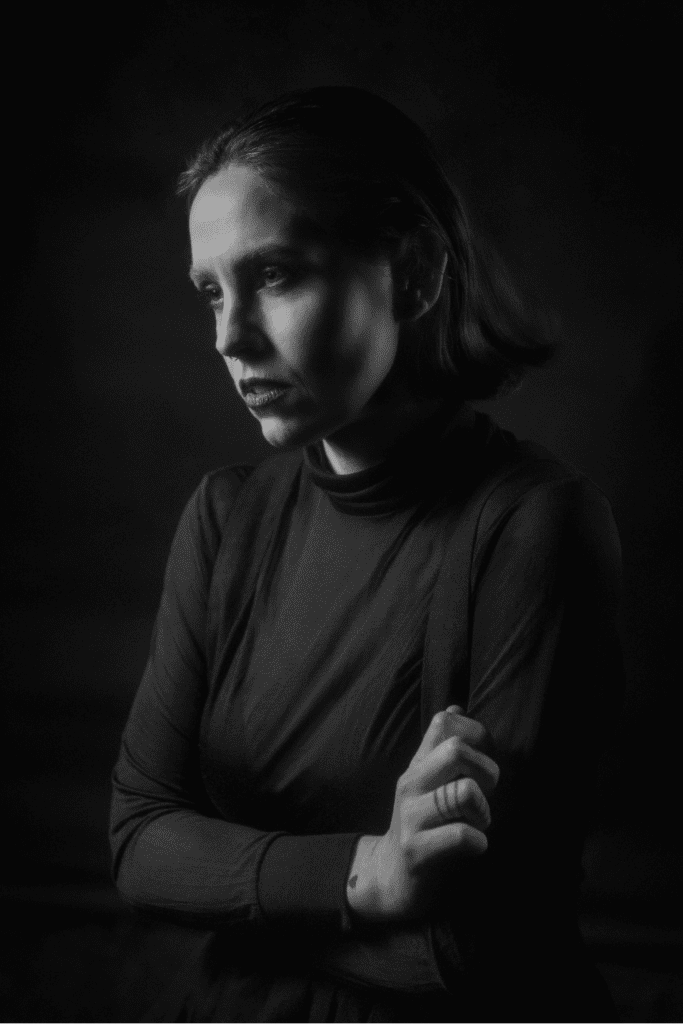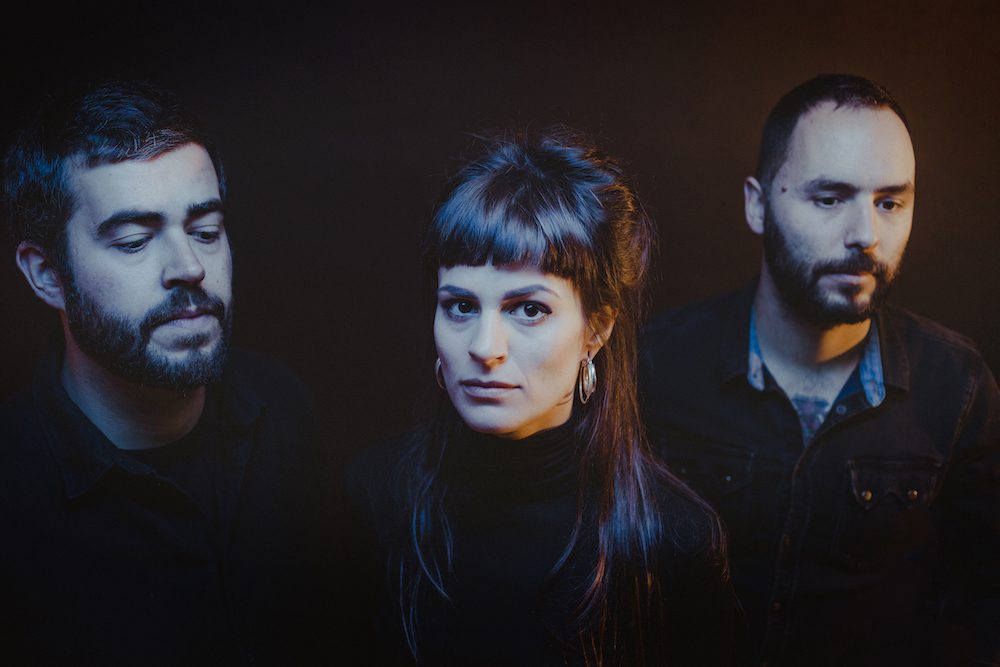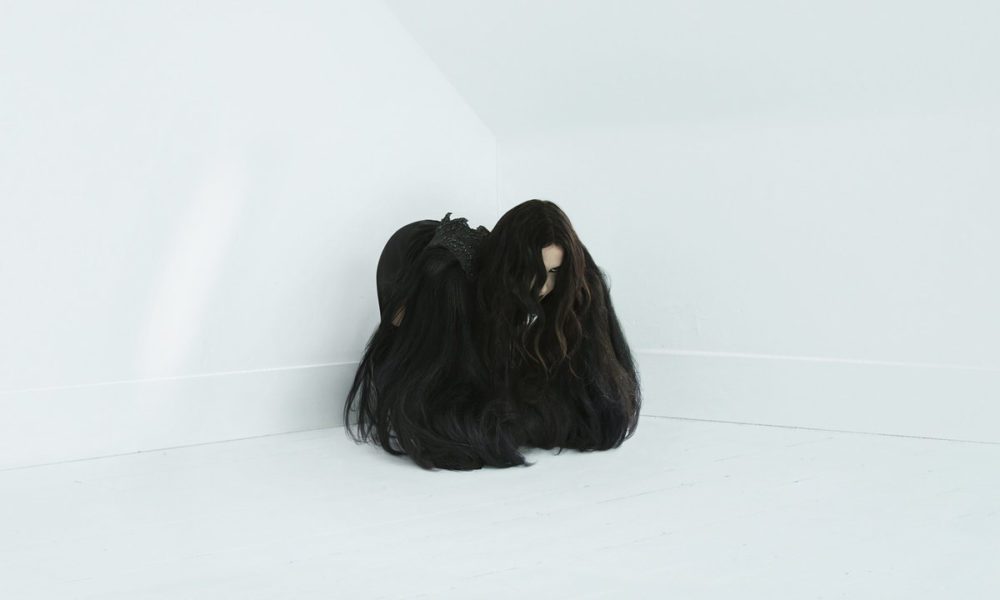

Emma Ruth Rundle documents a chilling musical catharsis on her latest LP Engine of Hell; in the first fifteen minutes alone, she’s “down at the methadone clinic” on “Blooms of Oblivion” or lamenting the sadness of the world and the grief of death on “Body.” Pairing her world-wearied voice with piano alone proves deeply moving. The instrument is a sympathetic body; it tinkles, thunks, sings, shrinks away from touch or yields to the warmth of Rundle’s fingers. As far as comparisons go, there’s something here of Patti Smith’s throaty, poetic spoken word-style delivery and Tori Amos’ early work: confronting but beautiful songs digging through the emotional violations of her past.
When we speak, Rundle has taken time away from her Portland home to stay in a cabin near Netarts, Oregon. It is a different type of being alone to the one that instigated Engine of Hell. “Isolation was a was a huge piece of this album,” she explains; she began writing it while living in Kentucky with her (now-ex) husband, far from her roots and her rock ‘n’ roll lifestyle. It was so alien to her that it sent her hurtling into a morass of memories and addictive behaviors. “The original title of this record was actually A Strange Midwest, which was about waking up in a weird place, alone, without any sense of self. The lockdown definitely pushed things further than maybe they would have gone otherwise. But I think a lot was leading up to this,” she says.
The album was recorded in Stinson Beach, California in December of 2020 at Panoramic House with longtime co-producer Sonny Diperri. “It was Sonny and I for ten days alone in the studio,” she remembers. “It was eerie, and intense and great. I did a lot of crying. We would track and then we’d listen, because we had to listen to choose the takes.”
All the guitar songs, and some of the piano, couldn’t be separated because Rundle had purposely recorded those songs as live performances. The process meant that Rundle would record several takes, listen back with Diperri, then do it again.
“The last few days, I added a bunch of overdubs with these keyboards they had lying around, only to decide that 90% of that was garbage and that the record didn’t need it,” Rundle adds. “It needed to be as naked as possible.”
It is the starkest of her records, the most bare-faced, openly wounded, humbling work of art. Sober today at 38, and grateful for it, Rundle’s formative musical influences make perfect sense – she recalls 1996 Tori Amos opus Boys For Pele as a spiritual sister to this album, along with Sibylle Baier’s Colour Green and Nick Drake’s Pink Moon.
“There’s also this record, Monotony Fields by Shape of Despair, a metal album that had so much despair on it, which gave me permission to just express that feeling and not be embarrassed about singing about how intense that state can be,” she adds. “Those were the records for me that set the ship sailing, got the boat in the water for this album.”
Her lyrics and her music have always felt emotionally genuine, candid and poetic, but not like Engine Of Hell. It follows her 2020 release, the deep, dark May Our Chambers Be Full with Louisiana metal band Thou, her third solo album On Dark Horses in 2018, and her harrowing 2016 sophomore album Marked for Death, largely informed by Rundle’s ongoing battle with adenomyosis – a condition in which damage occurs to the uterine wall, causing heavy bleeding and chronic pelvic pain, similar to endometriosis.
The LA-born and raised singer-songwriter’s musical career began in earnest when her mother took her to music store McCabe’s and allowed her to pick any instrument to learn. An adventurous choice – the Celtic harp – was swapped for a guitar, as well as the added bonus of 13 years working at McCabe’s thereafter. Her mid-twenties saw her enter a prolific period, self-releasing her first solo efforts Electric Guitar: One in 2011, and the darkwave-style Somnambulant, in 2013. Credited to The Headless Prince of Zolpidem, it revealed a new, disconcerting soundscape. She was also active in several bands at the time, with credits on four albums and two EPs across three projects: the Nocturnes, with Dave Clifford, Paris Patt and Julian Rifkin; post-rock quartet Red Sparowes; and Marriages with Greg Burns and Andrew Clinco.
But it was her official debut album Some Heavy Ocean (2014) that cemented her relationship with record label and management company Sargent House and its founder, Cathy Pellow. Rundle recorded it at the label’s in-house studio, taking up residence there during the sessions. It proved one of her most introspective, empowering experiences.
“I’ve been working with Cathy for over a decade. Cathy had my back and believed in me, in her way, since I was much younger. She took good care of me, she let me live in her house more than once… I’ve lived with Cathy five times because I’d been a mess and she’s always had the door open… that’s been invaluable in my life,” Rundle says. “For a long time, Cathy was my soul family – other than my sister, she was my person. I love her very dearly; our relationship goes so much further than business stuff.”
Rundle says Engine of Hell was hard for Pellow to hear. “It made her uncomfortable and she was concerned about how this might be received and if it would negatively affect my career, but she supported me,” she says. “Cathy and Sargent House never get involved… I make music, I turn it into them, and they have a reaction, which is incredibly supportive.”
While Pellow’s concerns are easily understood, Rundle’s discussions of mental health and revelations of trauma and addiction weave neatly into the cultural climate of the moment. Recurrent lockdowns and global fear and isolation have only amplified topics like these, already emerging in public forums and social media prior to the pandemic. To talk about these issues openly feels like a step toward recovering our collective emotional homeostasis. But to call the album cathartic would be too simplistic, not honoring its multi-tonal palette, its layers of memory, grief, healing, and suffering, and its deliberations of identity that can’t be neatly wrapped into lyrics and expunged. “I think it can be all the things without having to be just one,” she responds. “I feel like it has been cathartic. It was interesting writing it, then having finished it and listening to it now.”
She’s continued to expand on the album’s motifs by directing a pair of haunting videos: “Return” sees her playing both an Angel and Death; “Blooms of Oblivion,” co-directed with John Bradburn, offers some literal weightlessness to the song’s heavy subject matter. “There’s some catharsis there, especially making the videos and really getting to process these things in new and different ways,” she adds. Rundle’s been developing her own visual lexicon since she took up painting as a teenager; her most recent exhibition was part of a group show at London’s Parliament Tattoo commemorating the thirty-year anniversary of the release of iconic Hole debut Pretty On The Inside. One of thirty artists asked by Courtney Love to contribute work (which can be viewed in 3D here), proceeds from the auction benefit Treasures Foundation and Clean Break women’s charities.
No matter the medium, Rundle recognizes that achieving catharsis will be a lifelong quest for her. “I have some really intense trauma and tendencies towards some of the darker colors of the palette when it comes to mental health and emotional states of being that I don’t know will ever go away. It’s a thing that needs to be managed, and there’s maintenance involved… nothing is necessarily resolved,” she says. “I do think that making Engine Of Hell really helped me, in so many ways, transform my life. It was a quest to get back in touch with myself, where I came from, the context for my existence, because I lost touch with that, and I spent so long numbing myself out. I wanted to figure out what had happened and why, and why I was like this.”
Her candour on the album is liberating for herself and for this writer, and hopefully, for listeners too. The thrumming, pared back acoustic guitar on “The Company” is a plaintive ballad, wielding so much feeling in the spaces between notes, her sad humming lament. The guitar, melodically brighter and fuller on “Razor’s Edge,” is the tender caress to ease the sharpened edge of the lyrics, reflecting on the loss of youth, though it remains lyrically bleak. “There’s no need to check the weather as my winter never ends,” she sings. “I’ll be dancing on the razor’s edge, then.”
As they put the tracklist in order for Engine of Hell, Rundle and Diperri listened back to the songs once again. “It was startling to hear the album,” confides Rundle. “It was like, woah, am I really going to do this and let people hear this? It’s pretty intimate and a little bit uncomfortable to listen to. Later, I decided that’s exactly what I set out to accomplish, so that is a success. Whether it’s any good doesn’t matter. I had set out to do a thing and done it, without judgement. There was a goal, we set out to do it, we did it, there it is.”
Follow Emma Ruth Rundle on Instagram for ongoing updates.




